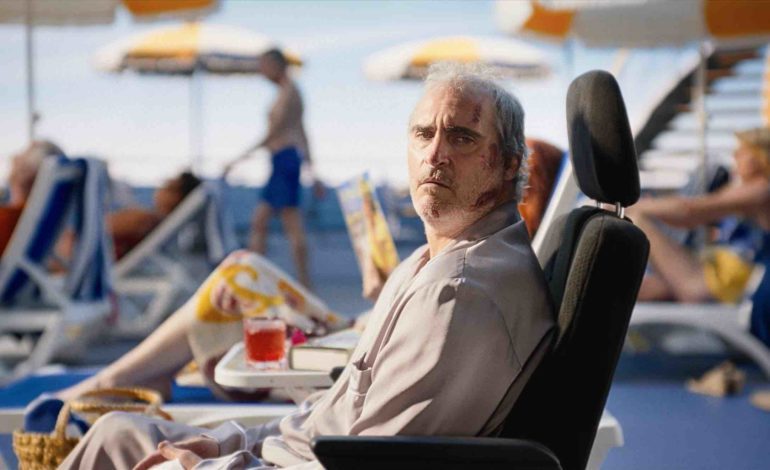

To understand Beau Is Afraid, you must realize Ari Aster. The only problem is that knowing him may be an impossible feat. The director, usually known for his impressively beautiful visual style and disturbing imagery, presents himself as an artistic enigma. His first two films, Hereditary and Midsommar, are almost universally revered, and Aster has been at the forefront of what many refer to as “elevated horror” – (this phrase essentially alludes to the idea that the past few years have seen horror films take on an aura of prestige, both visually and thematically).
Of course, biographical details about Aster will appear with a single Google search, but knowing the inner workings of his mind is another thing entirely. Almost all of Aster’s films, Beau Is Afraid included, are about the complicated nature of relationships, primarily familial ones. Aster works better with emotion and psychology (often psychosis) than with plot. Any viewer looking for solid story resolution in his films may walk away disappointed. Still, the viewer who seeks a semi-abstract examination of the human mind will find a treasure trove, especially when watching Beau Is Afraid.
The film, which will enter its wide release period on Friday, April 21st, follows Joaquin Phoenix’s Beau as he attempts to return home to visit his mother. After learning some unsettling news involving his mother, the journey becomes increasingly difficult for the character. His travels become something of an Odyssey, in which he encounters everything from a troupe of traveling woodland actors to a serial killer. Phoenix, along with the rest of the cast, which includes reliables like Richard Kind, Patti Lupone, and Nathan Lane and brilliant surprises like Kylie Rogers, gives phenomenal performances that serve as constants throughout the entirety of the three-hour film.
Beau Is Afraid does not give viewers the satisfying conclusion they have likely been so conditioned to receive. It may not give any decision at all. Then again, any viewer looking for a typical, safe experience should probably stay far away from Aster’s work. However, willingness to engage and be surprised will reward any person who chooses to watch. In the same vein, Aster’s dedication to the cinematic format is certainly worth reckoning with. The film, separated into three distinct parts with a common throughline, would have been interesting to develop into a television series.
But Aster must have known beforehand that Beau was meant for the big screen. The film, which has been in limited release in New York and LA, has become the second highest-grossing little release film for A24, coming in just under the Adam Sandler film Uncut Gems. Aster, known for astonishing visuals, does not disappoint. Most shots are either breathtaking or so detailed that the IMAX screenings are well worth it.
Beau Is Afraid has already garnered some extremely positive and negative reactions and will likely continue to do so as more people see the film. The best way to watch it is to understand that portraying the complexities of the human mind, including but not limited to nightmares and what it truly feels like to have anxiety, is where the film shines. Beau Is Afraid is a good movie but may present obstacles to some viewers.
Rating: 4/5
But that shouldn’t be perceived as a weakness. Beau Is Afraid is challenging in all the right ways. Like Ari Aster, the human mind is vastly complex. Aster’s attempt to portray the less friendly aspects of the psyche is one to be grappled with and reckoned with, mainly because pleasure is not the ultimate goal. Beau Is Afraid is nightmare fuel in the best way – it’s essentially about a nightmare.
